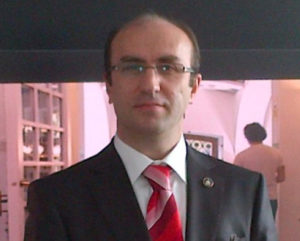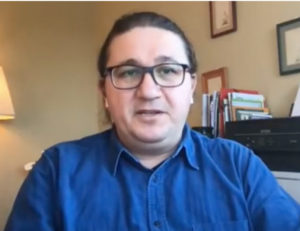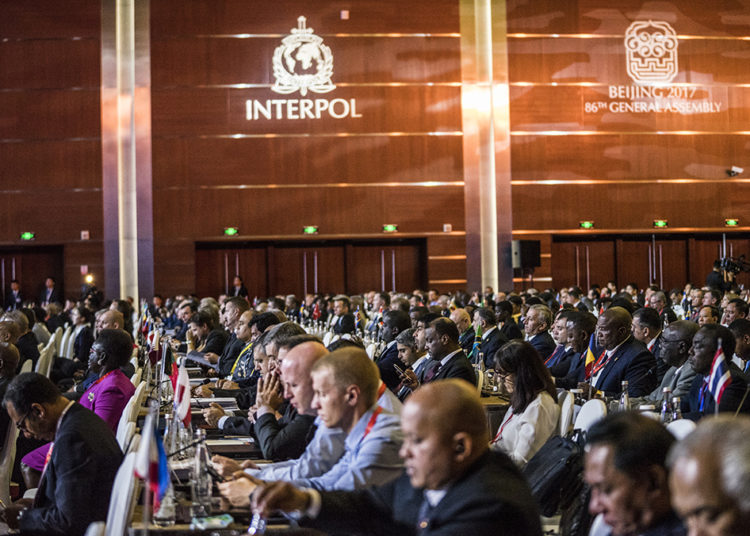Levent Kenez/Stockholm
Turkey is preparing to convince top police chiefs from all over the world that Turkey’s counterterrorism policies are in line with international norms during the 89th General Assembly of Interpol, which will be held in İstanbul this November, according to a document obtained by Nordic Monitor.
Turkish President Recep Tayyip Erdoğan on April 28 forwarded an agreement between Turkey and Interpol on privileges and immunities for visiting delegates and their families during the general assembly — a routine obligation requested from the host country — to the Turkish Parliament for approval with a justification note attached which explains that the event is beneficial for bringing up Turkey’s counterterrorism activities including those against government critic the Gülen movement, which has been active in education, charity and interfaith dialogue activities around the world.
In addition to raising Turkish arguments, the letter also indicates that the general assembly will offer an opportunity to increase the visibility of Turkey in global and trans-national counterterrorism, in an effort to repair the image of the Erdoğan government, which is accused by Western allies and Russia of supporting armed jihadist groups, particularly in Syria, Libya and Palestine.
President Erdoğan’s letter to the Turkish Parliament regarding the Interpol General Assembly
Actually, the Turkish strategy to lobby top Interpol professionals and Executive Committee members is not new. Nordic Monitor previously published a judicial document that urged the Erdoğan government to lobby the General Assembly as well as the Executive Committee to bypass the restrictions and bans imposed by the General Secretariat on fraudulent filings to harass critics and opponents of the Erdoğan government.
It is no secret that relations between Turkey and Interpol deteriorated following a controversial coup attempt in July 2016, after which Turkish authorities filed dubious and false charges through Interpol to hunt down legitimate critics of President Erdoğan. In response to Turkey’s aggressive tactics, Interpol had to halt filings by the Turkey bureau and implemented increased filtering after complaints of violation of the Interpol Constitution.
The Parliamentary Assembly of the Council of Europe (PACE) in September 2017 stated that Interpol and its Red Notice system had been abused by Turkey in the pursuit of political objectives, to repress freedom of expression or to persecute members of the political opposition beyond its borders, in resolution number 2161 after Spanish police detained two journalists critical of the government with dual Swedish/Turkish citizenship and German/Turkish citizenship upon an Interpol notice issued by Turkey in August 2017.
In 2020 a report published by the US State Department on human rights practices underlined that there were also credible reports that the Turkish government attempted to use Interpol Red Notices to target specific individuals located outside the country, alleging ties to terrorism connected to the 2016 coup attempt or to the outlawed Kurdistan Workers’ Party (PKK) based on little evidence.
The report also mentioned that according to Freedom House, an NGO advocating democracy, political freedom and human rights, since the 2016 coup attempt Turkey had uploaded tens of thousands of requests to Interpol for persons the government designated as affiliated with the Gülen movement. There were also reports that individuals faced complications related to erroneous lost or stolen passport reports the government filed against suspected Gülen movement supporters in the years directly following the coup attempt. Targeted individuals often had no clearly identified role in the attempted coup but were associated with the Gülen movement or had spoken in favor of it. The reports to Interpol could lead to the individuals’ detention or could prevent them from traveling.
Experts and human rights observers are anxious about Turkey’s hosting of Interpol’s General Assembly. They worry whether the event will lead to a policy change at the executive level of the organization.

S. Ahmet Eren, former assistant director at the Interpol General Secretariat, told Nordic Monitor that “… the general assembly meeting that will be held in Turkey, which frequently abuses Interpol and other international mechanisms and does not implement European Court of Human Rights (ECtHR) rulings, might justify abuses and give a green light to Turkey to continue its unlawfulness.”
“This seriously damages Interpol’s reputation and credibility. It also encourages other rogue states to persecute their dissidents and increases the perception of impunity,” he added.
Eren, who is against Turkey’s hosting the event, also claims that using the advantages of being a host country, Turkey could submit misleading reports and warns delegates to approach the demands of the Turkish government cautiously.

Murat Çetiner, a former Turkish police chief and advisor to Nordic Monitor, is also concerned that the general assembly in İstanbul may play a role in policy change. He believes the Turkish National Police will do everything in their power to influence the delegates. “Since every member country has one delegate, even those representing small countries will be taken care of very well, ” Çetiner said.
According to the Interpol website, the General Assembly is the organization’s supreme governing body, comprising representatives from each of the member states. It meets once a year with each member state being represented by one or several delegates who are typically chiefs of police and senior ministry officials.
Despite the fact that Turkey and Interpol signed an agreement for the November event, it is not clear whether COVID restrictions will allow for a safe gathering and travel. Many countries have halted flights to and from Turkey given the fact that Turkey is one of the countries worst affected by COVID, with the highest infection rate in Europe. Many counties in the EU have announced that passengers coming from Turkey are required to quarantine in a designated location.
European football’s governing body UEFA ruled to move the Champions League final on May 29 from Turkey to Portugal for the second year running. Moreover, the Formula One Turkish Grand Prix, scheduled for June 11-13, was canceled in view of several countries imposing travel restrictions to Turkey due to rising COVID-19
Eren forecasts a low possibility of the cancelation of the Interpol General Assembly. “Since last year’s gathering in Dubai was canceled due to COVID restrictions, I don’t think it will happen again since many decisions are waiting to be taken. But it is madness to meet in Turkey, where less than 15 percent of the population has been vaccinated. I believe many delegates will hesitate to travel to Turkey,” he said.












